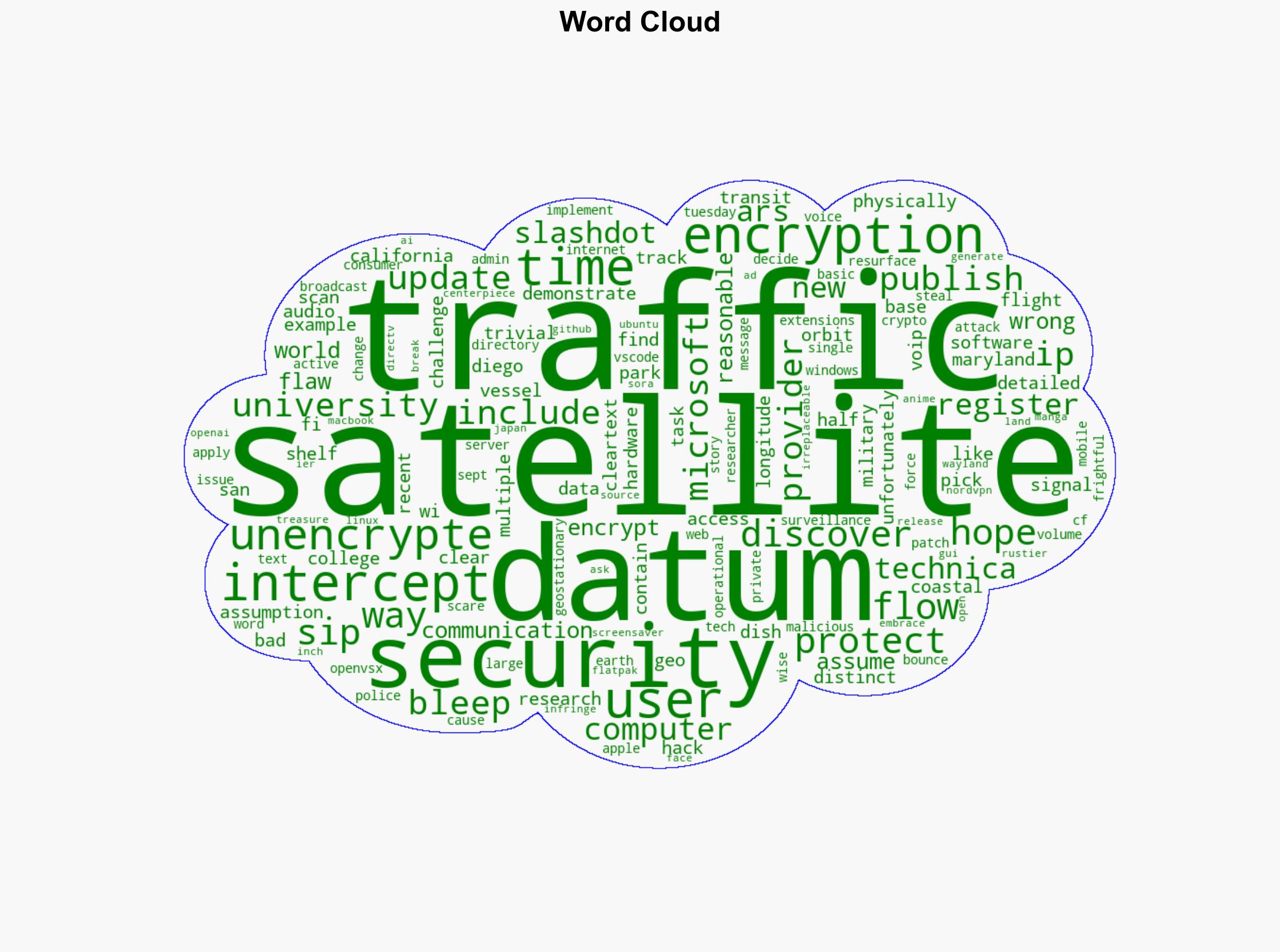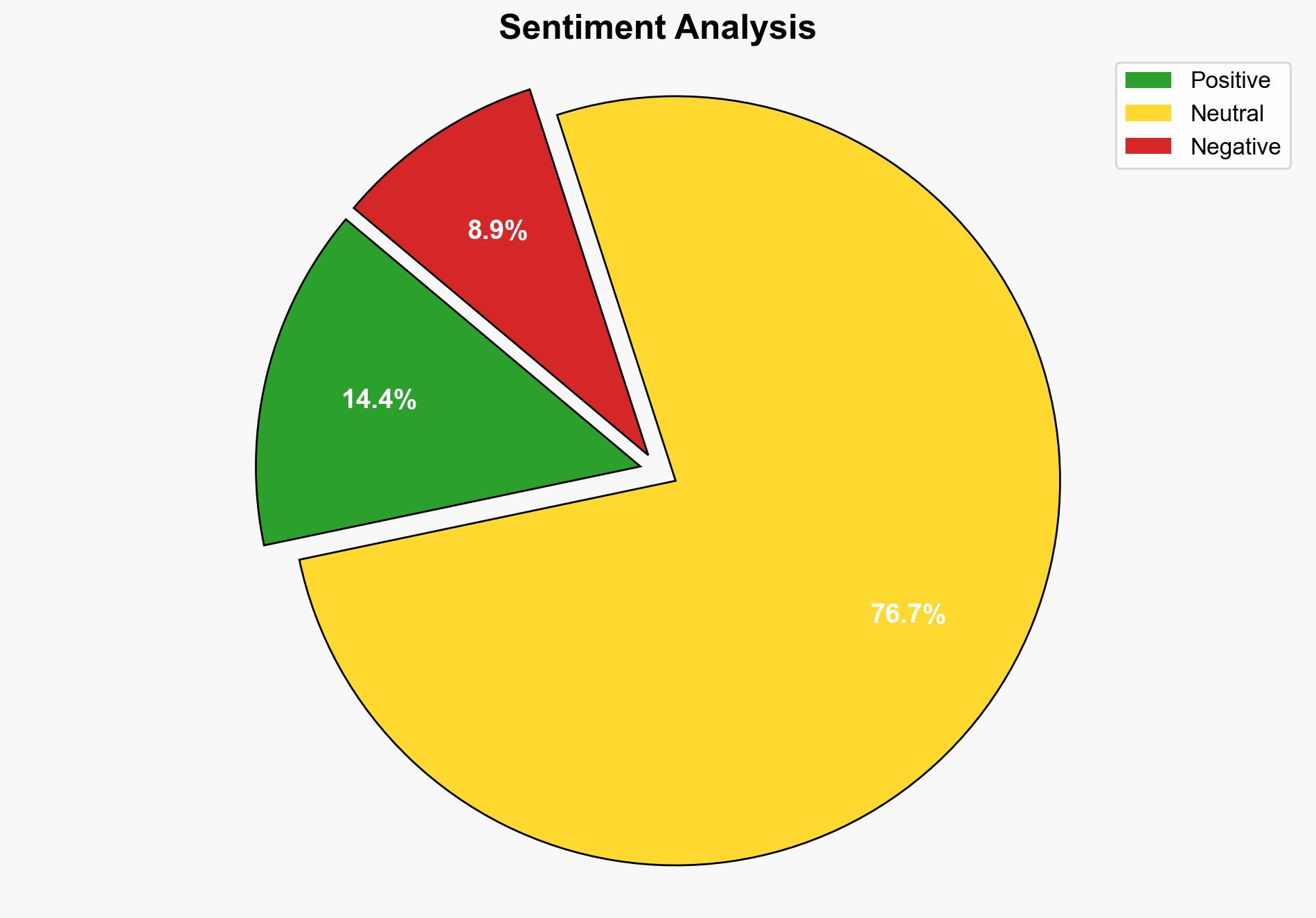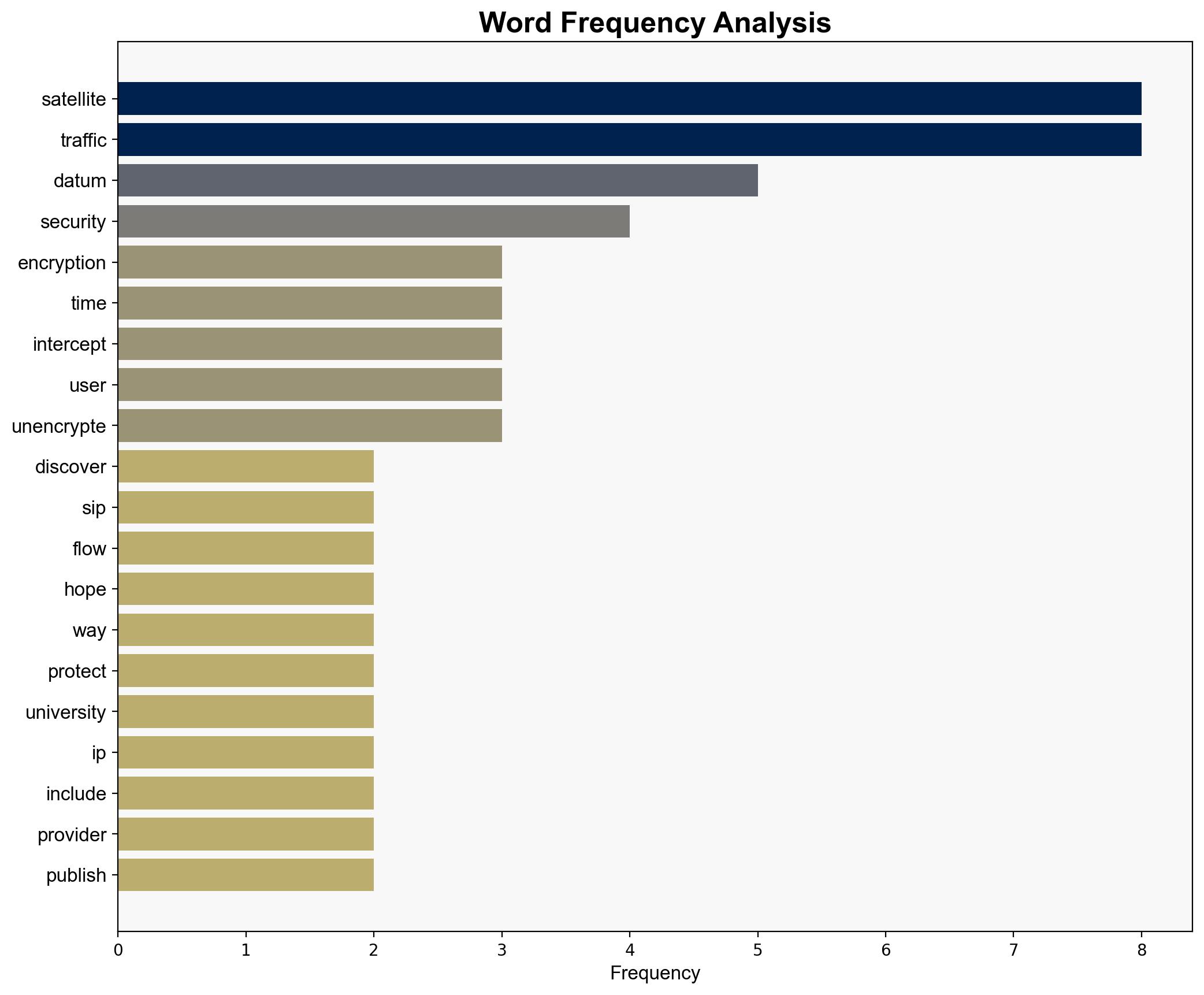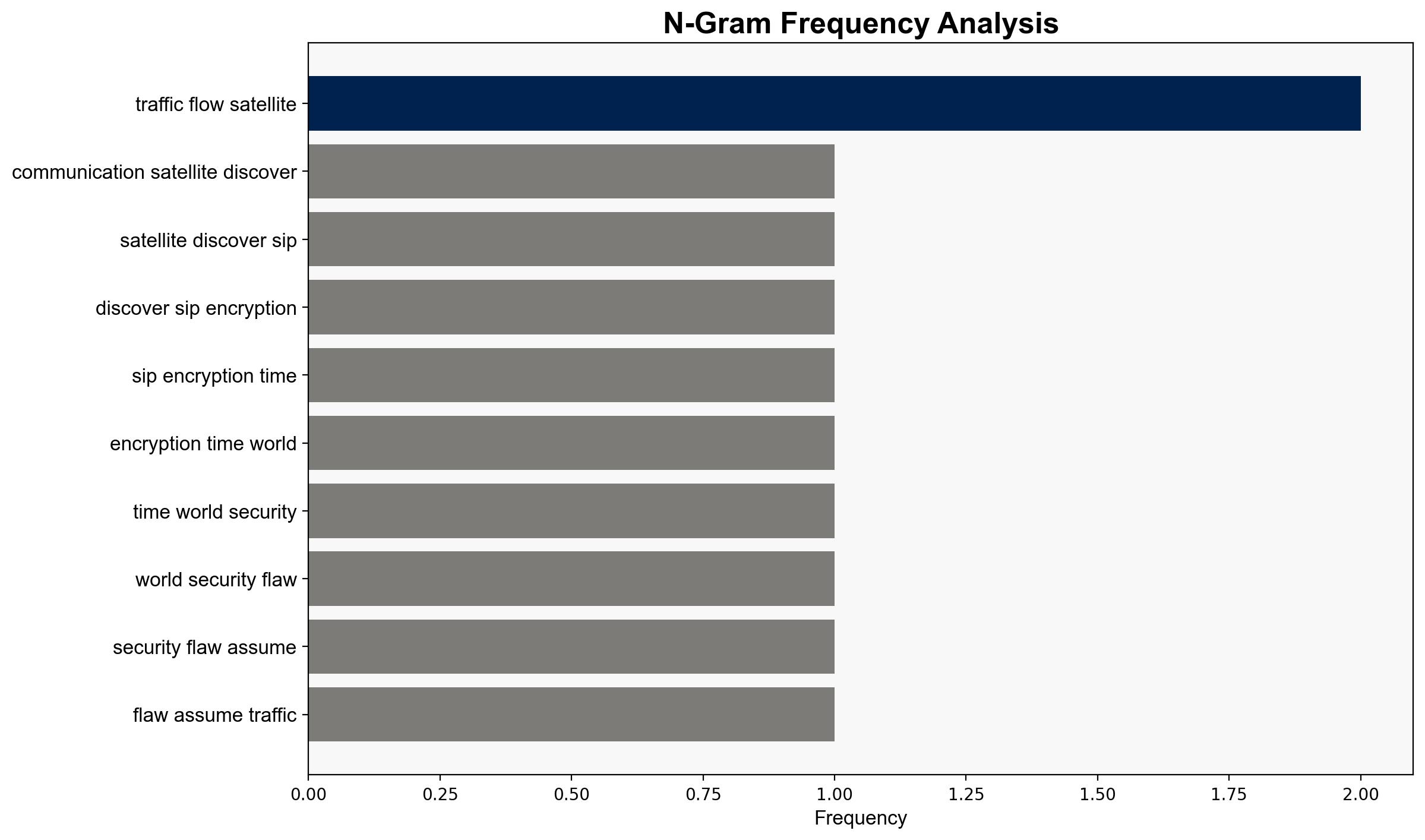Communications Satellites Discover SIP Encryption For The First Time – PC Perspective
Published on: 2025-10-15
Intelligence Report: Communications Satellites Discover SIP Encryption For The First Time – PC Perspective
1. BLUF (Bottom Line Up Front)
The discovery of SIP encryption by communication satellites highlights a significant security vulnerability in satellite data transmission. The most supported hypothesis suggests that the lack of encryption in satellite communications is due to historical oversight and technical challenges rather than deliberate negligence. Confidence in this hypothesis is moderate. Immediate action is recommended to enhance encryption protocols for satellite communications to mitigate potential security breaches.
2. Competing Hypotheses
1. **Historical Oversight and Technical Challenges**: The absence of encryption in satellite communications is primarily due to historical oversight and the technical challenges associated with implementing encryption in satellite systems.
2. **Deliberate Negligence or Cost-Cutting**: The lack of encryption is a result of deliberate negligence or cost-cutting measures by satellite operators, prioritizing cost savings over security enhancements.
Using the Analysis of Competing Hypotheses (ACH) 2.0, the first hypothesis is more supported. Historical and technical challenges are consistent with the pattern of unencrypted data transmission observed in various satellite communications, as highlighted by the research findings.
3. Key Assumptions and Red Flags
– **Assumptions**: The first hypothesis assumes that satellite operators have not prioritized encryption due to technical constraints and historical practices. The second hypothesis assumes that operators are aware of the risks but choose to ignore them for cost reasons.
– **Red Flags**: The lack of direct evidence linking specific operators to deliberate negligence. Potential cognitive bias includes assuming technical challenges without considering recent technological advancements.
– **Inconsistent Data**: The report does not specify which satellite operators have begun implementing encryption, leaving a gap in accountability.
4. Implications and Strategic Risks
The unencrypted transmission of data via satellites poses significant cybersecurity risks, including potential interception of sensitive military and civilian communications. This vulnerability could be exploited by state and non-state actors, leading to geopolitical tensions and economic disruptions. The cascading threat includes potential breaches of national security and privacy violations.
5. Recommendations and Outlook
- **Immediate Action**: Satellite operators should prioritize the implementation of encryption protocols to secure data transmissions.
- **Policy Development**: Governments should establish regulations mandating encryption for satellite communications.
- **Scenario Projections**:
– **Best Case**: Rapid adoption of encryption leads to enhanced security and reduced interception risks.
– **Worst Case**: Continued negligence results in significant data breaches and geopolitical conflicts.
– **Most Likely**: Gradual implementation of encryption as operators balance cost and security.
6. Key Individuals and Entities
– **Research Institutions**: University of California, San Diego; University of Maryland, College Park.
– **Technology Companies**: Microsoft, Apple, NordVPN.
7. Thematic Tags
national security threats, cybersecurity, satellite communications, encryption, data privacy





